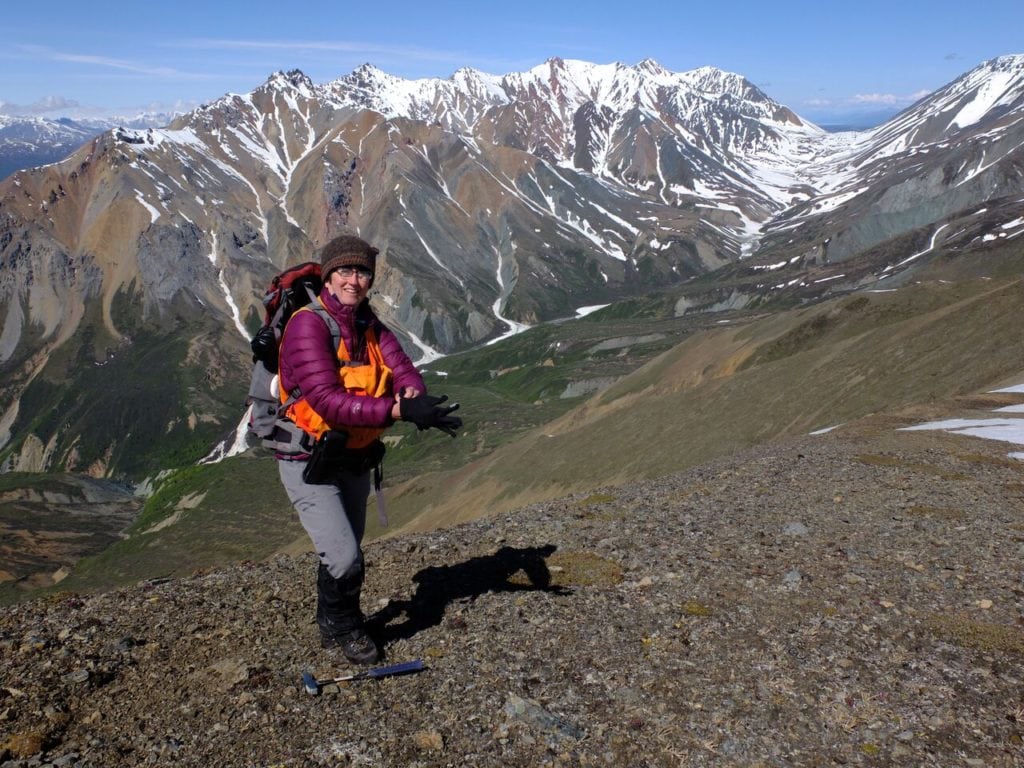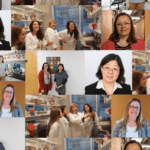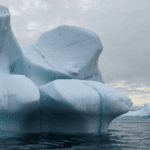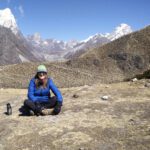So far, in the women-in-science series we’ve talked to two life scientists: an aquatic ecologist (Andrea Kirkwood) and a medical geneticist (Catherine Anderson). This week we move into the world of earth science to interview a geologist.

Carolyn Relf, PhD, has been hooked on geology since grade 12, when one of her teachers developed a geology curriculum that included a four-day field trip (code word for ‘party’ in high school…). She has been the director of the Yukon Geological Survey (YGS) since 2007, an organization that does everything from regional bedrock mapping, to studying geologic hazards, documenting Yukon Territory’s glacial history, and interacting with clients ranging from major mining companies to small mom-and-pop placer mining operations.
Relf has a BSc in Geological Sciences from Queen’s University, an MSc from Memorial University in geochemistry and mineral chemistry, and a PhD from Queen’s University in structural geology, metamorphic petrology, and Archean tectonics. She has spent her professional career in Canada’s north – upon completing her PhD in 1992 she entered the public sector, working as a project geologist for the Northwest Territories (NWT) government. Her academic experience with Arctic fieldwork logistics and challenges, as well as with the local geology, was critical in helping her land that first job.
“Women doing geological mapping were a minority when I started working, and they still are,” she says. “Even so, when I was starting there were already a number of women blazing a trail ahead of me, so I didn’t feel like I was ‘boldly going where no woman had gone before.’”
At the beginning of her career, Relf regularly completed an annual 10-12 week stint of fieldwork doing bedrock mapping across Nunavut and the NWT, and was able to work with graduate and undergraduates on projects relating to her mapping. As with our previous interviewees, things changed once she had a child. “When I was doing a lot of fieldwork I didn’t have a family, and since my husband is a geologist, too, we both travelled a lot. Once we had our daughter, my husband quit work to stay home with her.”
Not long after, Relf made her initial move into management as the Chief Geologist for the NWT, and cut her fieldwork back to 2-3 weeks at a time to allow her more time with family. “I was disappointed to be stepping away from geology, but was also excited by the new learning curve and the possibility that I could contribute to some bigger challenges,” she says. “With the benefit of hindsight, the decision I made to try something completely different has worked out very well for me.”
Relf counts herself lucky, noting that as a government geologist she hasn’t experienced the same challenges that she believes women working in industry as exploration geologists might face. “I’d suspect they face more challenges breaking into the ‘boys’ club’ than women in the public sector do,” she muses. “But exploration geologists work around the world in very different cultures, so their challenges are very different than mine have been. And in spite of the challenges, I know a number of women who have been very successful in the exploration business.”
Relf’s challenges have mainly been associated with fieldwork, whether that’s logistics, weather or wildlife encounters – but her career trajectory, while unexpected, has proven both highly successful and satisfying. Her reputation has preceded her through each job change, with mentors recommending that she apply. These days she doesn’t practice science directly, but she finds that having a science background is highly relevant to her current job duties which require supervising geoscientists, and liaising with industry, First Nations, and the public to identify knowledge gaps and set priorities for the YGS. She still fits in some field work here and there with colleagues, or visiting exploration properties.
While the number of Canadian women graduating with earth science degrees increased to approximately 50% in 2009, the proportion of women actually practicing geology is well below that at 26%. “It suggests that there are still impediments out there,” says Relf, “And while networking organizations such as Women in Mining help, it’s not easy to change a culture overnight.”
When asked what advice she would give girls interested in a career in science, Relf emphasizes that science is about thinking creatively and inviting – rather than avoiding – critical feedback. “I’ve known women who take criticism too personally, and that never ends well,” she notes. “Remember that theories can’t be proven correct, they can only be disproven. So don’t shy away from argumentative colleagues who want to discuss your data and pick apart your models.”
Given Carolyn Relf’s career trajectory I’d also add: get the experience you need to be an expert, don’t be afraid to take on new challenges, find a supportive partner, and be prepared for change.




